Tony Wakeford has been making music since 1977, starting with political punks Crisis. Wakeford and ex-Crisis members started the seminal postpunk/neofolk Death in June. Afterwards came his current project, Sol Invictus. Wakeford’s career has not been without controversy. He recently discussed his legacy with Souciant.
Indeed, any one of the bands Wakeford has been in could merit a feature-length piece all by itself. Although Portland metal-folk-experimental band Agalloch have recently been working with him, a new generation of punk fans has discovered the stridently political music of Crisis, who during the late 1970s abided by a pro-union, pro-queer, and explicitly socialist — Trostkyite, in fact — line. Sean McGhee, who assembled the definitive Anarcho-Punk CD series collection, and who was also in the anarchist band Psycho Faction, has claimed that during the late 1970s “the three C’s of political punk were Crass, Clash, and Crisis.”
Crisis dissolved in 1980, with guitarist Douglas Pearce going on with Wakeford (who played bass for Crisis) to start Death in June, originally a dark postpunk band in the vein of Joy Division. Patrick Leagas was also recruited, who explained the choice of name this way: “The name Death in June came from something I said during a rehearsal. I had brought in the idea & lyrics for ‘State Laughter,’ [and] when asked, ‘What is the song about ?’ I said, ‘Oh, just the usual death & gloom.’ This was misheard as ‘Death in June,’ and so it became.”
In the early 1980s, Wakeford also started a short-lived postpunk act, Above the Ruins, a band that has become a source of controversy that dogs him to this day. For less than a year in the early 80s, Wakeford was involved with the National Front, a group that Wakeford has many times since spoken out against. And even though he has disavowed this affiliation several times over, certain stridently political websites in the UK won’t forgive him for this period. (Wakeford has even called Above the Ruins a “shite” band, below.) As is clear from the following interview, Wakeford has liberal-progressive political views. And if it matters — and it shouldn’t — Tony’s wife (and Sol Invictus violinist) Renee Rosen is Jewish. But this wouldn’t matter if certain petulant British pundits treated him fairly.
So, let me weigh in with my own two cents on the Wakeford-was-in-the-National-Front-in-the-early-eighties-for-less-than-a-year issue, since it unfairly dogs any Google search you do on him. The two principle UK websites that seem to have a hard-on for disparaging Wakeford’s name are grossly unfair, and I would even say borderline libelous. It’s as if one were to find an entry at the Southern Poverty Law Center site nowadays about Ian Mackaye because he wrote “Guilty of Being White,” or for Keith Morris for singing “White Minority” while in Black Flag.
Artists should be able to go through periods of flirtation with whatever way of ideological thinking they please, and if they recant — as Wakeford has for decades now — they should ultimately be able to live it down, and move on. The bassist of the Sex Pistols murdered his girlfriend, and yet there are very few websites dedicated to tarnishing the reputation of the Sex Pistols (or even Sid Vicious.) Wakeford never murdered anyone. He flirted with a group he admits was wrong. That should be the end of it. (A similar thing recently happened with Killing Joke, when Gaystarnews.com reported that the band was “homophobic” because of comments made in Zig Zag magazine over twenty years ago. Bands in the early ’80s were wont to flirt with a lot of provocative stuff – just check out the lyrics to Agnostic Front’s “Public Assistance,” for example.)
After leaving Death in June, Wakeford founded the still-extant neofolk band Sol Invictus, who have a new release coming out in 2013. A Facebook-only preview song, “The Devil on Tuesday,” has been officially leaked via the Agalloch Facebook page. You don’t meet many people who have had their hands in ’77-era punk rock, postpunk, and neofolk, and so it was a genuine privilege to be able to speak with Tony Wakeford about his musical history.
Interview with Tony Wakeford
Conducted by Oliver Sheppard on December 2, 2012
Souciant: I think there is a rough consensus out there that you, Douglas Pearce (Death in June), and David Tibet (Current 93) created what’s now known as the neofolk genre (although there were certainly antecedents, as with anything). Is this something you accept, or do you feel this is a misguided assessment? What do you think about neofolk, as a genre, and any involvement you had in creating it? Was there a special musical approach you were shooting for at the time?
Tony: Well, I have very mixed emotions about it all. It was a kind of synchronicity. I certainly don’t remember any great plan.
For me, a lot of it was down to moving from bass, so I had more scope to write, and I was only able to afford an acoustic guitar at the time. Also, taking David Tibet’s advice to drop the crappy drum machine!
As for what it is now, I’m not that comfortable with parts of it. Some “artists” seem to be in it for overtly party political reasons and frankly I have no interest in playing on the same bill or being connected to cranks who hang out with Holocaust deniers, and shill for Islamist bigots, etc. Thankfully, the far right in Britain at the moment are pathetic, but in certain other parts of the world, they are a lot more dangerous. Individuals can believe what they like, and I am against censorship and banning, but when people are getting killed for who they sleep with, or having the wrong stamp in their passport, I think it’s maybe time for a little less ambiguity? Rant over.
Souciant: My own take on the earlier Death in June stuff — vis a vis a critic’s comment on Allmusic.com that mentions that early Death in June sounded like “Joy Division, but with horns” — is that it was indeed a new kind of exploration of a darker take on postpunk, bringing other elements into play. Was there some conscious decision-making going on in Death in June regarding that approach? I guess I am asking what you felt you, Douglas P., and Patrick L. were going for, when you began making music as Death in June?
Tony: That sounds fair enough. But to be honest I’m the last person to ask. I find it hard enough to remember what I was doing last week. Death in June was intense, but the whole imagery and ambiance was a lot more the brainchild of Douglas P. & Patrick Leagas. I was finding it hard enough work playing bass and singing at the same time.
http://youtu.be/jFJcgWoW9mw
Souciant: How do you feel about a lot of the newer bands that go under the banner of “neofolk”? What are some of your favorite newer bands that are exploring the genre?
Tony: There are some interesting bands and some terrible bands and lots in between. I make a point of not really listening to the scene that I am bracketed in. I am more likely to be listening to Steven Wilson, Tiger Lilies, or 16 Horsepower at the moment. The best concert I have seen in years was Othon & Tomasini & Jo Quail in London the other week. Wonderful make up and frocks. Jo also looked nice.
Souciant: What’s the status of Sol Invictus? Still ongoing? What’s in the pipe as far as Sol Invictus goes?
Tony: We are working on a new album that Prophecy will release in 2013. Two of my feral lesbian noise serfs are off brutalising the natives for 6 months — BUT they did their recording before they buggered off. Don Anderson of Agalloch has very kindly allowed himself to be a guest on it, and a mad Russian called Anton is — amongst other things — singing and playing fuzz harmonica on a Henry Cow cover. Make of that what you will. Many will hate it, as it is also a rune- and Julius Evola-free zone.
Souciant: The raven theme has come up a few times in Sol Invictus, and now with your new project, Twa Corbies. Is there something about ravens you feel holds special cultural and/or symbolic significance, and what is that? They’ve obviously been a favorite of poets for centuries! What attracts you to this creature?
Tony: Well, I have been a bird nerd forever, and a member of the paramilitary wing of the Royal Society for the Protection of Birds for a long time. Renee and I have looked after a couple of rescue parrots for many years, and you realise how wonderful they are and how appallingly they and other species are treated. Ravens and crows are of course highly intelligent. Historically they’ve been feared by the stupid and loved by the clever.
Souciant: About your new musical project, Twa Corbies, can you tell folks what this is about, and what type of music you will be making under this name?
Tony: Well, it is mainly a live project with a good friend of mine (despite him being German), Gernot Musch. It is a very simple, two-guitars-and-voice set up. A sort of Simon & Garfunkel — or in our case, Surly & Carbuncle. We may release the occasional single, but it is more for playing live. It is an easy project and show to put together, and not so expensive for promoters.
Souciant: Why Twa Corbies and not Twa Owls? You’ve evinced your fascination with owls often, too. What about owls holds fascination for you, and are there any other animals that have a similar appeal?
Tony: We were stumped for a name and as Eraldo Bernochi looks and sounds like some wizened, hooting, night creature with his glasses, the name stuck. Of course, I look like the young Dirk Bogarde.
All animals appeal to me (in a non-German sense, I hasten to add) and I don’t know if it’s a late mid-life crisis, but it is that side of things that interest me. I have even gone veggie. I would go vegan, but vegan cheese is a crime against God, man, and nature. Spookily I even seem to have become a bit lefty on a lot of issues, but remain resolutely fascist with those who abuse children and animals. They should be neck-shot and dumped in unmarked graves. Fox hunters and trophy hunters should be fed to honey badgers and the Countryside Alliance should be dropped into vats of acid.
Souciant: If I can dig back really far now, what are your thoughts about Crisis and its legacy? I know some folks have said “the three C’s of political punk” in the late 70s and early ’80s was Clash, Crass, and Crisis. How do you feel about that music in retrospect, how it’s held up, and how Crisis have become a very popular (in the cult sense) political punk band of that time?
Tony: I think it has held up pretty well. I am just amazed that all the old band members seem to be still with the living.
Souciant: What was the most insane or outrageous experience you had in Crisis, playing live? Did you ever play with Siouxsie, or The Clash, or The Damned, etc.?
Tony: Doing a concert where both the audience and band had partaken of some very strong sulphate, and playing a set which lasted 25 minutes instead of the usual 45 minutes. Being drunk and speeding and falling off stage wearing a German helmet — not, it must be said, my finest moment. Oh, and more recently someone saying “I saw you at the Aklam Hall gig. You were getting out of the back of a van and swinging a chain…” Oh dear.
http://youtu.be/-Z39ebwpNE4
Souciant: Anything you’d like to lay to rest regarding your “controverisal” postpunk band Above the Ruins? From a musical standpoint, Above the Ruins to me is just grade-A, top notch postpunk, like the Blitz Second Empire Justice LP or something. What should folks know about the reputation or controversy about Above the Ruins, that they may not?
Tony: Above the Ruins was shite, and a product of a really bad period in my life. But if you like it, fair enough.
Souciant: Your own continuing involvement with newer and younger bands shows you are not closed off in a musical bubble, but continue to engage with the living evolution of music. What are some of the newer bands you like? You mentioned you’d be joining Agalloch on stage. Are there any other bands like this, nowadays, that speak to you? Who are they and why do you think they’re noteworthy?
Tony: I joined Agalloch on stage when they played in London and if I make it over the pond, Don Anderson will be forced on stage with me at gunpoint. I am very out of touch with the scene, but the bands that use neofolk as a departure point rather then an entry point are the interesting ones. The last album by Of the Wand and the Moon, The Lone Descent, is a case in point, and they are great live. That is what I mean by a band that transcends what some think of as “neofolk.” If they can just get rid of that hanger-on Kim Larsen……
Souciant: Do you have continuing contacts with Douglas P? Any chance you would ever play out with him as Death in June? There are some live Youtube vids of you and Douglas playing with David Tibet, as Current 93, that are just fantastic! Any chance we will see you all regroup and play out together, under whatever name?
Tony: I’m still in touch via the occasional email but no, my connection with Death in June ended thirty odd years ago. It is Doug’s band. I am but a fat footnote.
Souciant: Where can folks go these days to get Sol Invictus or even Twa Corbies stuff? Any chance you may be coming to America soon?
Tony: Sol Invictus is on the heartless Prussian multinational Prophecy, so go there to be wallet raped. I have stuff on Bandcamp and Discogs if you look hard enough. It is possible I may make it over to the ‘States at some point if I can face the flight, and if they let me in. My own label is Tursa: BCM Tursa / London / WC1N 3XX.
Tony Wakeford with Agalloch photo courtesy of jonanamary. Published under a Creative Commons license.
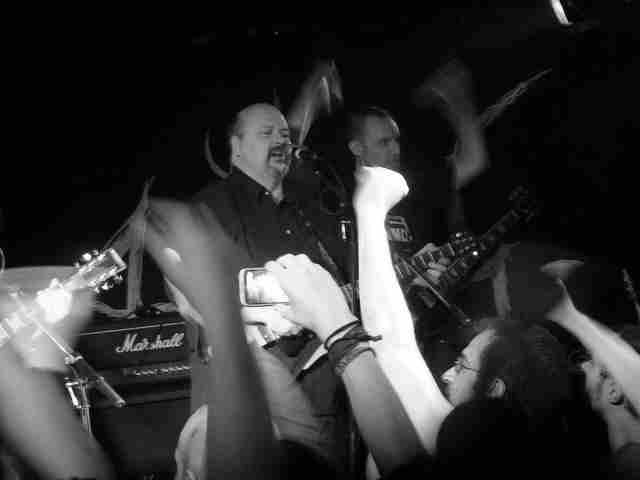
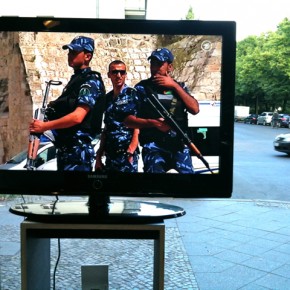
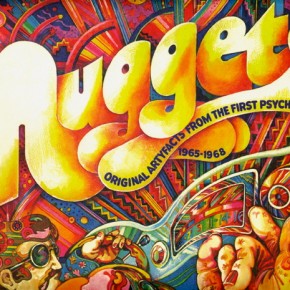
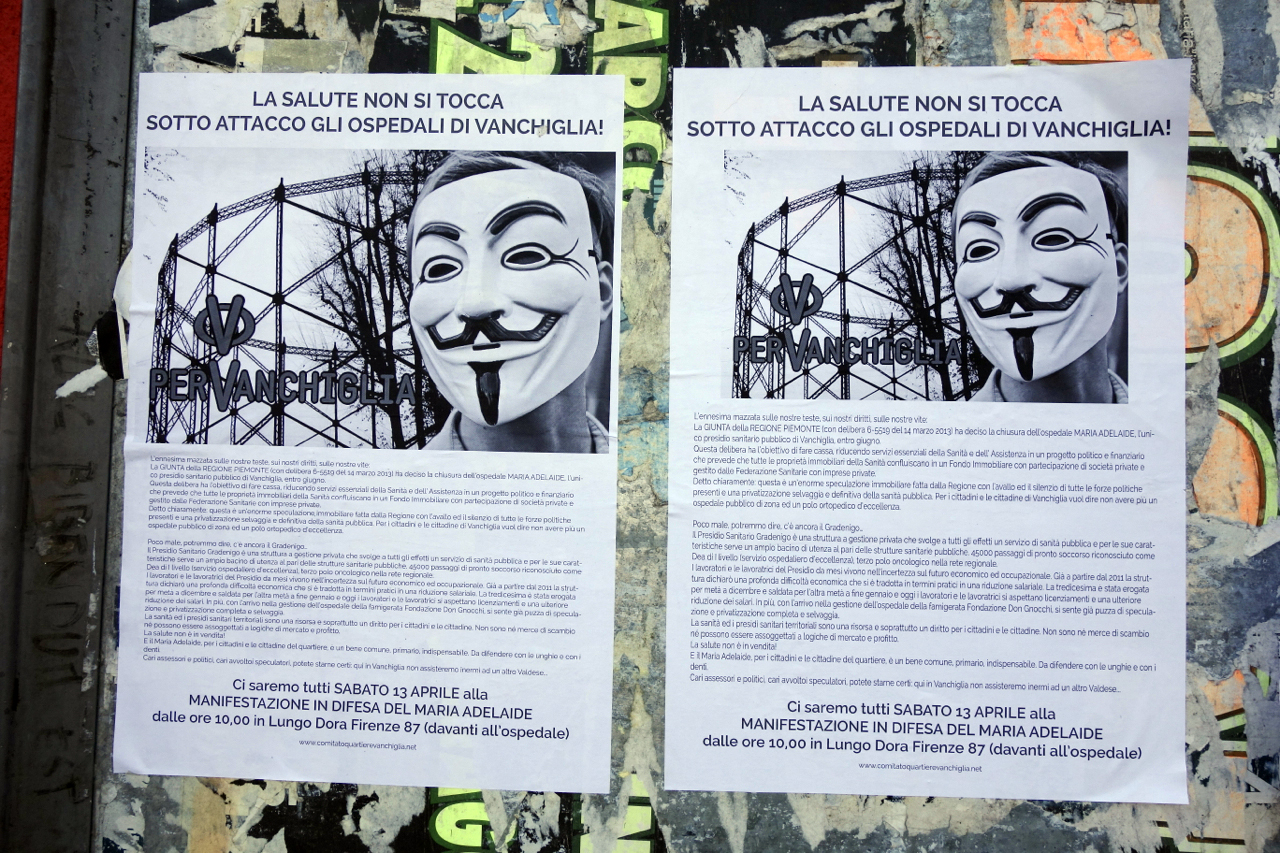
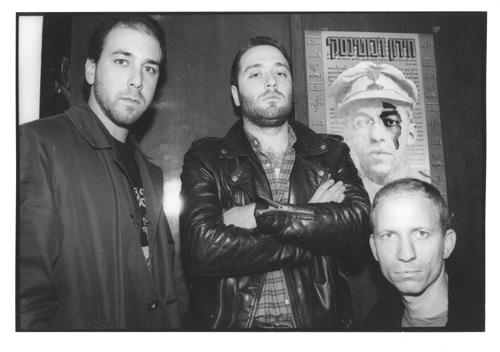
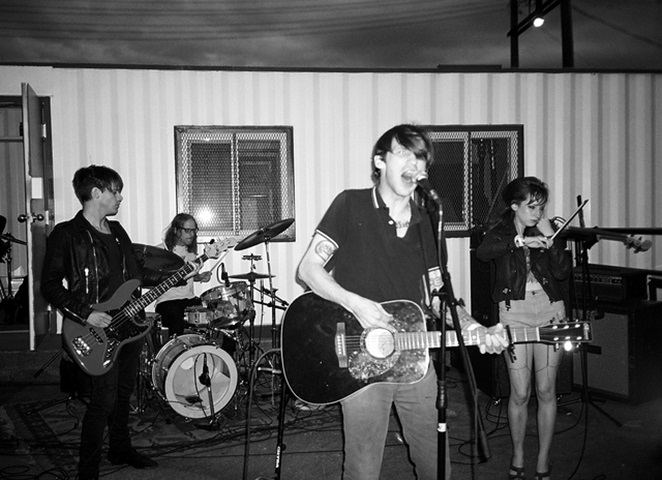
Man, is he funny. Have never heard of neo-folk. Will check out his work. Re musicians with bad politics: if it’s oblique in their work and interviews, it’s not fair to hold it against them.
“controversial” post-punk band Above The Ruins? In the same way the Skullhead or Brutal Attack are “controversial” punk bands? Asking artists “oh, please, when will you rejoin former bandmate X to relive the glory days of group Y” is embarrassing to everybody concerned, doubly so when you’re dealing with unapologetic fascist cheerleaders like Doug Pearce. “Go on, think about it – do it for the fans – it’ll be just like the good old days!”
Happy to see Tony unambiguously voicing his opposition to racism and fascism though, and that he’s putting his money where is mouth is by refusing to play on the same bill as Spreu & Weizen. It’s a start. I wonder if he’s fallen out with Andrew King over the Countryside Alliance though – I know Andrew is a staunch supporter, being something of a “traditionalist” (in the jackbooted sense of the word).